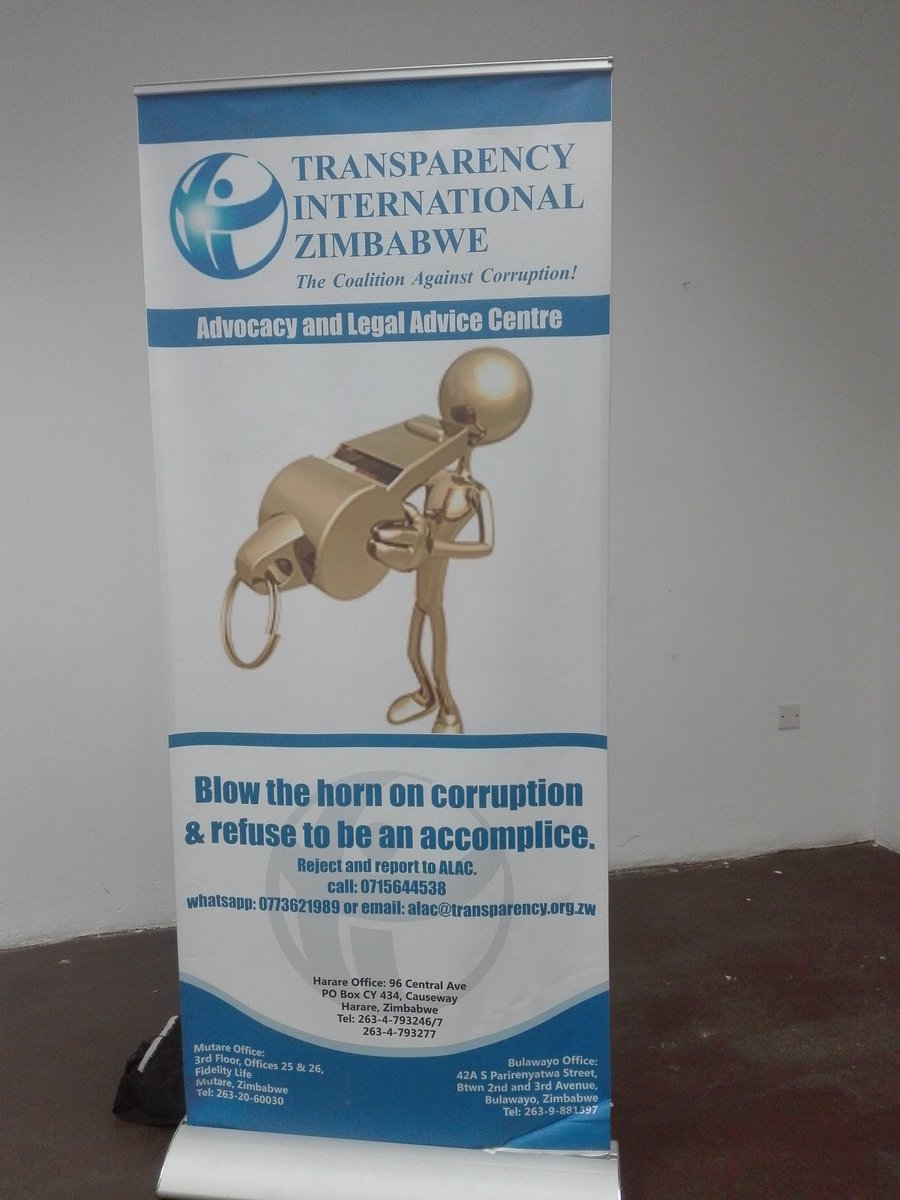By Tatenda Mujeyi
Transparency International Zimbabwe (TIZ) has engaged key stakeholders in fiscal processes to dialogue towards the institution of informed policies in Harare today.
TIZ emphasised the key role the dialogue will play in availing information that generates knowledge on prevailing circumstances and recommend on the improvements that can be implemented.
“There is still a lot that needs to be done to facilitate for the improvement of fiscal transparency and this dialogue is one of the platforms through which we hope to avail more information on the required improvements,” Transparency International Zimbabwe Researcher Samuel Matikiti said at the dialogue.
The Auditor General’s office emphasised that their 2018 audit had exposed vast shortcomings public institutions were experiencing in fulfilling their mandate.
“The 2018 Auditor General’s report exposed that there are low performance rating grades that are mirrored amongst most of the public departments,” Bonface Mukwenga, Director of Audit in the Auditor General’s Office said.
Areas that public institutions were underperforming included filling, service delivery, maladministration, non-submission of financial statements, unsupported expenditure among other grave inconsistencies.
“Late submission of annual reports is a major concern as only 3 out of the 92 local authorities had submitted their financial statements in time. The number of payments that have no receipts is also overwhelming and some payments made by public institutions had seen no delivery of the paid-for goods,” Mr Mukwenga said.
Legislators were also contributing to the challenges as they were concentrating on affiliation politics that left their service delivery function compromised.
“Heckling in Parliament is a key impediment to the institution of policy frameworks that can improve our communities as well as fiscal transparency. However, as parliamentarians we are never willing to applaud colleagues from different parties as we believe we are giving them headway. This has to change if we are to fully realise policy reforms,” the Parliamentary Committee Chairman for the Budget, Finance, and Economic Development, Hon Felix Mhona said at the event.
Shortages were also viewed as a major impediment to service delivery and some funds were not being utilised by public bodies.
TIZ emphasised their interests in realising the improvement of the fiscal space and guaranteed their continued contribution to the matter.
“There seems to be no coordination between the public institutions, Auditor General’s office, Parliament, government, local authorities, and other key stakeholders. As TIZ we view this area as a key arena from which the economic and social conditions can be improved and will work tirelessly to see the improvements,” TIZ Head of Programs Farai Mutondondo said.
Procurement challenges which were also recurrent were argued to be meeting no redress as the offending parties had links with procuring entities.
“The Procurement Act has provided for the debarment procedures which can be enacted once the procuring entity reports the inconsistency with the Procurement Regulatory Authority of Zimbabwe. However, owing to the relationships between the fraudulent entities and the procurement entity no reports are being made,” Benson Share the PRAZ Procurement Manager said.
The dialogue proffered vast recommendations that include warranting of arresting powers to Parliament, overhauling Government’s management system among other issues.






